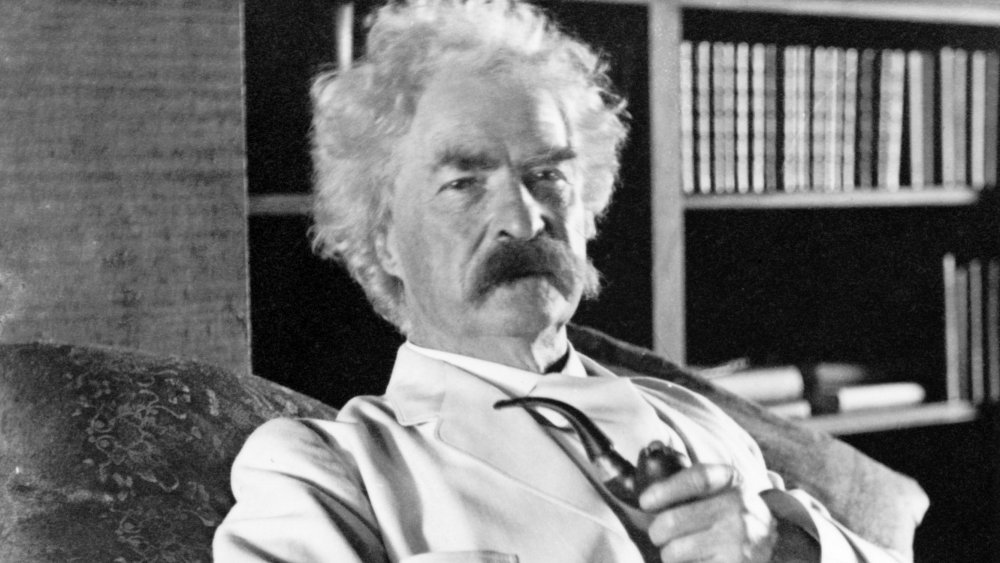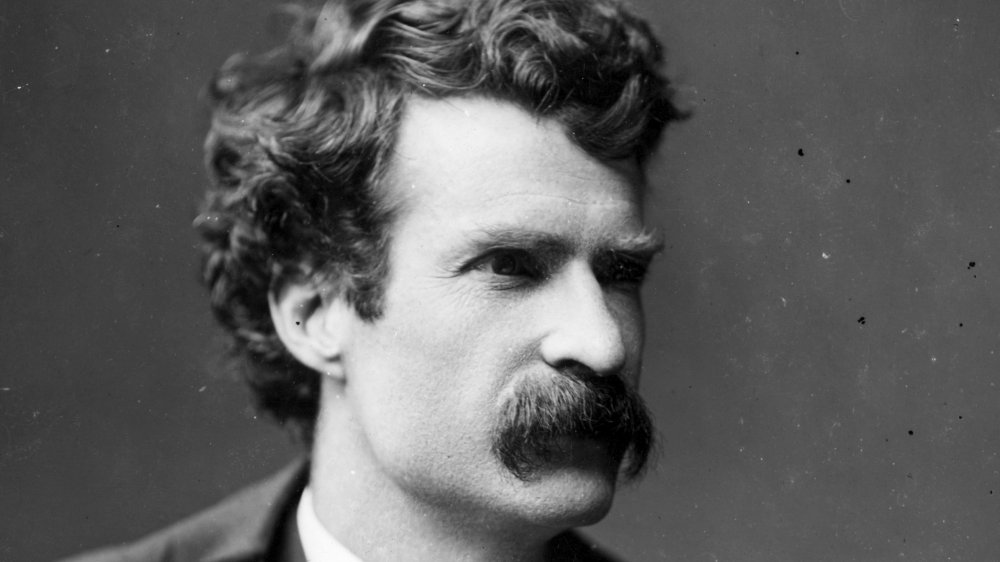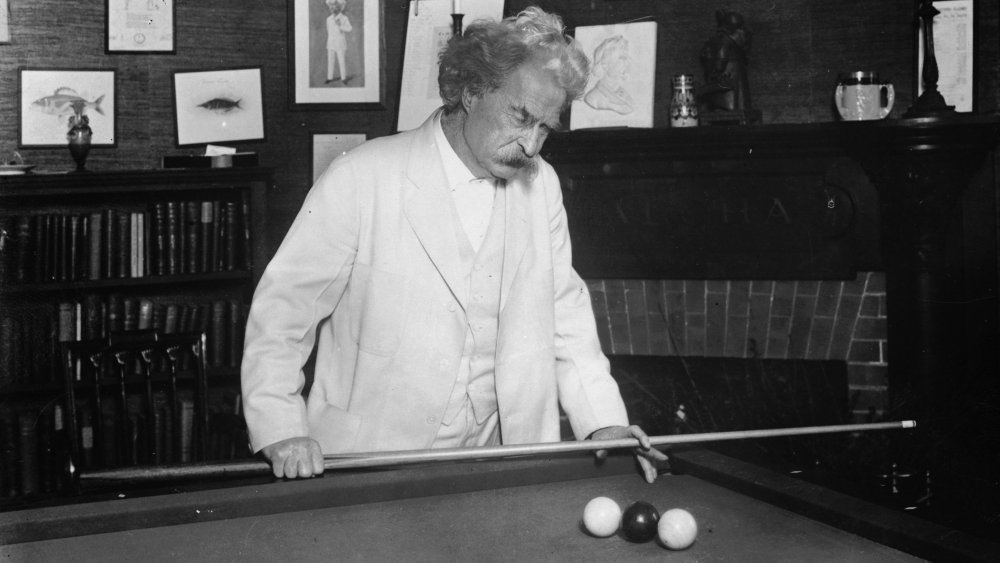The Tragic Final Years Of Mark Twain
Life has always been hard, with each generation having its own challenges. The Greatest Generation gets applied to the people who won World War II after surviving the Great Depression, but look at history — there's always something. And here's Mark Twain, one of America's first and most enduring humorists and social commentators, who could tease gently or skewer thoroughly. When you look at Mark Twain's history, it's a wonder that he even smiled at all.
He was born Samuel Langhorne Clemens in 1835 in a wee hamlet in Missouri, says Biography. The family moved to Hannibal, relatively larger and on the banks of the Mississippi River, when he was four. Sam was the sixth child in the family, premature and sickly, but soon growing up to be a handful, with high energy and a temper. As History tells it, as an adult he asked his mother, "I suppose that during that whole time you were uneasy about me?" "Yes, the whole time." "Afraid I wouldn't live?" "No, afraid you would." And that's also where he got his sense of humor.
He saw death early and often
Death was a constant, as was slavery. Two of his siblings died in childhood. A slave was killed by his owner as Sam watched. His father died when Sam was 12, and the boy entered the workforce, learning the printing trade. Eventually he became a steamboat pilot, a childhood dream, and used that position to get his brother, Henry, a job on one of the craft. A boiler explosion on the steamboat fatally injured Henry — he took a week to die, and Sam was with him at the end, blaming himself for the death of his beloved brother.
He married Olivia Langdon, 10 years his junior, reports PBS, and by all accounts loved and adored her the rest of their life together — she was the "most perfect gem of womankind," he wrote. Together they would have four children. Their son died, still a toddler, of diphtheria; a daughter died, age 24, of spinal meningitis; a second daughter, after being diagnosed with severe epilepsy, died of a heart attack at 29. And after 34 years of marriage, he had the sorrow of burying his beloved wife, Livy, in 1904.
He preferred the company of billiards and cats over people
Clemens had the further burden of financial failure. He had a tendency to gamble with investments, and he gambled badly, backing inventions that never came to fruition, or didn't sell, or otherwise proved to be economic sinkholes. After a lifetime of best-selling books and literary fame under the name Mark Twain — The Adventures of Huckleberry Finn, Personal Recollections of Joan of Arc, and others — he found himself deeply in debt. Rather than declare bankruptcy, he went back to work, touring the country and the globe, giving comic lectures to packed and enthusiastic concert halls. He repaid his debts in full and had a comfortable cushion for his later years. But those years were lonely. Twain often suffered from black depression, and the losses of his family members weighed on him terribly. He didn't really get along with his remaining child, a daughter, and they often quarrelled.
His health began to fail. He suffered from phlebitis, in addition to his emotional health issues, and often just stayed in bed, smoking cigars or his pipe. He continued to write — he was working on his autobiography when he died — but he spent more and more time playing billiards and enjoying the company of his cats — as many as 19 at a time, says Mental Floss. "If man could be crossed with the cat it would improve man, but it would deteriorate the cat," he wrote in one of his notebooks. He died in 1910, age 75.


